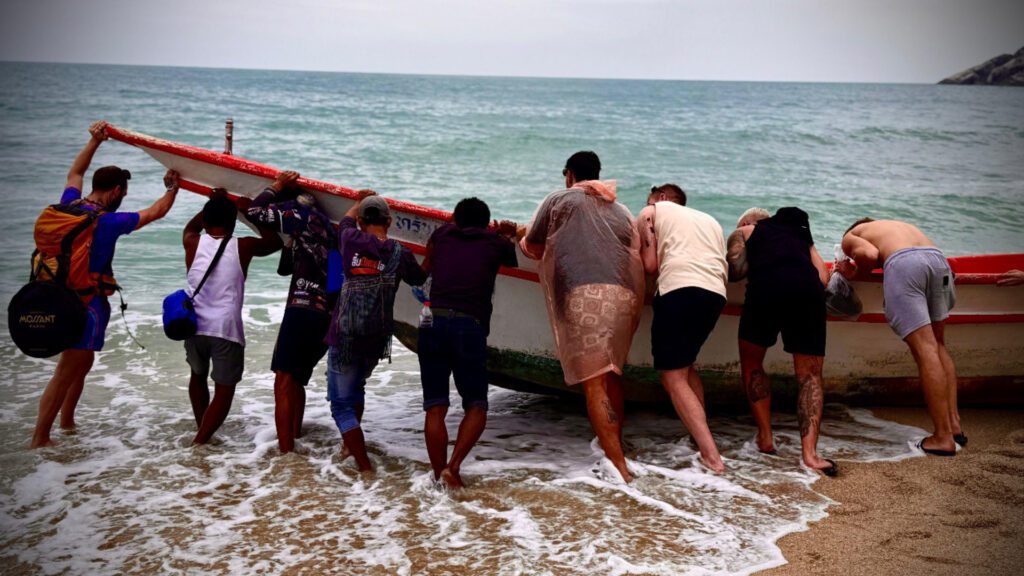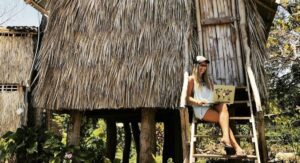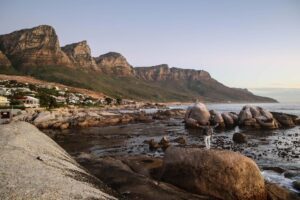Cape Town: A Digital Nomad’s Paradise? My Honest Reflection on a Month in South Africa’s Mother City
In this article, I’ll share how I spent my month in Cape Town hiking, eating, working, and reflecting. Including the things I loved, and the things that left me uncomfortable. This isn’t your usual “Where to get the best smoothie bowl” list. There are enough of those. Think of this as an unfiltered view of my time as a digital nomad in one of the world’s most beautiful and complex cities.
Originally, I came to South Africa in April 2025 for AfrikaBurn (read my other blog), but to be honest, this country at the southern tip of the continent had been on my list for a while. I had never been to Africa before, so this was a first.
In this article, I’ll share how I spent my month in Cape Town hiking, eating, working, and reflecting. Including the things I loved, and the things that left me uncomfortable. This isn’t your usual “Where to get the best smoothie bowl” list. There are enough of those. Think of this as an unfiltered view of my time as a digital nomad in one of the world’s most beautiful and complex cities.
How to get to South Africa
Most places in western Europe have a few direct flights to South Africa. Even if not, there’s a huge amount of connection flights via Dubai or Abu Dhabi, that are usually the cheaper, but slower option. A direct flight from Frankfurt takes around 11 hours, a layover 18 hours. Coming from the states the layover in Europe is a must. For me staying in Brasil before, I took a direct plane from Sao Paulo which brought me in just 7 hours to the South African Mother City, how the “Saffas” call it.
First thing I did at the airport was getting a sim card – you can’t miss it as the “Vodacom” guy is welcoming you with free water and his mobile data voucher. Cape town has 5G and I paid around 500 South African Rand for 40GB. That’s 25 €, so less than 1 € per gig. A fair price. My recommendation here as usual: Get the internet right away. The 5 bucks you save getting it in town is usually not worth it.
The “Mother City” – What’s the Hype About?
The population of South Africa is around 60 million with almost 5 living in Cape town. Why the name Cape town? Because it’s at the very lower peak of Africa, the Cape of Good Hope as it’s known historically. There are 11 official languages but very few times in the 4 weeks I heard anything else than English. So, you’re totally fine with it. Culturally it’s a mix of white and black Africans – and of course a huge number of seasonal travellers, expats and Digital Nomads from all over the world. But why do they come to Cape town and never leave again (as I found out)? What’s the magic behind this city?
Pure Nature Like Nowhere Else
Is definitely one secret ingredient. Imagine blue Atlantic waters, hitting sand beaches and striking cliffs and rocks. The iconic mountain shapes of the Lion’s Rock and table mountain always ruling in the back. Hourlong sunsets meshing gold into orange into blue into yellow. An impressive flora and fauna. Villas nestling on the long ridges of the famous peaks, the 12 apostles. One moment you’re walking through dense forest trails, the next you’re standing on a windy peak watching paragliders float down over the ocean. It’s a true paradise. A city framed by nature. Raw, strong, elemental.
When I arrived in April, it had just turned into autumn, but the weather was still great with around 25 degrees and plenty of sunshine. I was told that in winter it can drop to about 10 degrees, while summers reach 30 to 35 degrees starting in November. It’s a perfect place to escape the northern hemisphere winter, and that’s exactly what a lot of people do.
During my time in the city, I stayed in Green Point, Sea Point, and Camps Bay. These are the richer, more touristy areas and are considered mostly safe. Always just a short walk from the beach. I can totally recommend checking out Airbnbs there.
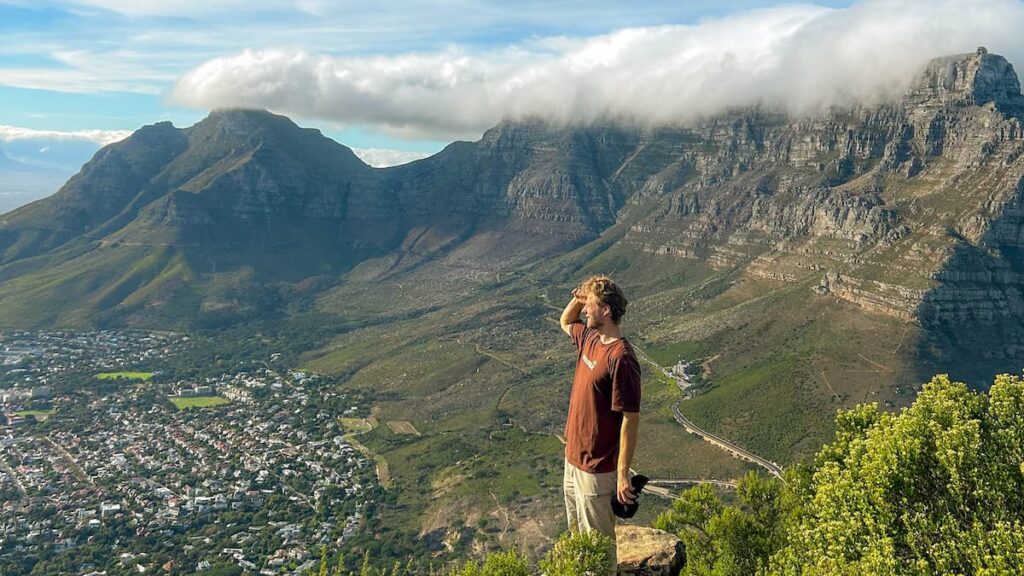
Cost of Living: Luxury for Less?
Pretty soon I found out that the cost of living is another part of what makes the Cape so attractive. Everything was way cheaper than I expected, and also really nice. You walk through beautiful neighbourhoods with sea views, every second car is a Porsche or Mercedes, but prices? Surprisingly low. At least for everything besides accommodation.
And with that I mean restaurants, snacks, groceries, drinks -basically the cost of daily life. Let me give you an example: going out for a steak with salad and fries in a mid-range, pretty decent place? Around 8 €. The meat quality is amazing, and it ranges from beef to springbok (one of the best steaks I’ve ever had) to ostrich, which is an absolute must-try.
Let’s keep going: a beer at a bar is often less than 2 €. A full-on braai dinner with salad, sides, almost 2 kg of meat, and wine? Around 60 €, easily feeding six people. So good.
Accommodation: Where to stay and where better not
I actually wanted to continue with gastronomy – you can probably tell how passionate I am about it. But let’s talk about where to stay first.
The usual areas I mentioned above, plus everything in between like Clifton, Bantry Bay, or the Waterfront, all make sense. But don’t go too far out. Cape Town can get pretty sketchy and, to be honest, quite dangerous. I’ve heard horror stories of robberies at knife or gunpoint happening within minutes after stepping into the wrong street. And to be fair, I felt that myself when I once walked off the main boulevard after sunset. Something you really shouldn’t do in Cape Town, not even for short distances. Just take an Uber — it’s cheap and much safer.
During my first week, I booked a private room at “Never at Home.” The name appealed to me. Decent size, good activities, a bar, and breakfast included — all in Green Point. Solid deal, 50 €. Later, I switched to studio apartments on Airbnb that were between 40 and 50 euros a night.
Once you’re in a group, you can go big and get a villa in Camps Bay. The five of us rented a spacious house with a room for each of us and paid around 80 euros per person per night. Swimming pool, barbecue, designer furniture, all that jazz. You could easily fit double the number of people, which makes it affordable for what you get. (Check the pics.)
Another friend group found a great villa with equal features paid a quarter of the price — because they stayed in Blouberg, about 30 minutes from the main tourist areas. I dropped by for a visit and we had a great time.
Keep in mind though, all of this was early low season. Prices in high season are higher. And compared to the otherwise low cost of living, accommodation can feel a bit out of balance, which, understandably, causes frustration among locals. I’ll get to that later.
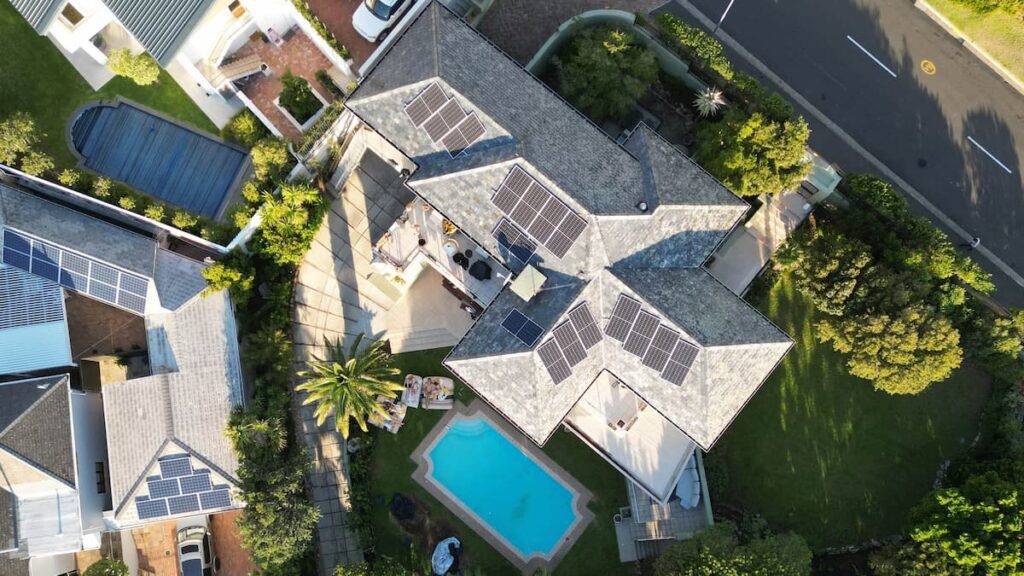
Food Culture: An International Gastronomy Heaven
But first let’s talk about something nice: The gastronomy of Capetown and it’s just insane. Big variation, high quality, affordable price – fresh seafood, seasoned meat from African farms. A melting pot of cultures that you can taste. And that’s what I did. Every day I went to another restaurant and got lost in the mothers cities heavenly flavors. My special recommendations (that I loved)
Ariel: Upper class Italian restaurant in sea point – A1 pizza
Mojo Market: Food market with over 20 stunning small kitchens (I think I tried half of them), a big bar and live music events
Fyn: delicatesse 10 course menu for 110 €, probably one of the best things I’ve ever had
Strangers Club: A1 brunch and lunch place in Green point with affordable prices
Kanela: Vegetarian breakfast place, ideally for Co-Working, turning into the “Greek fisherman” after noon
Just get on google, there’s nothing that doesn’t exist in Capetown – the world international and diverse are real here. It really reminded me of the gastronomic scene of Berlin. A foodies heaven, no contras. And about South African food? I guess I only got into the “Braai” the Saffa’s version of the barbecue. And that one I liked a lot. In the first free weeks in Cape following up my Ayahuasca retreat in Peru I didn’t eat meat – holy shit what did I miss out. The mother city is really a joy for every taste bud.
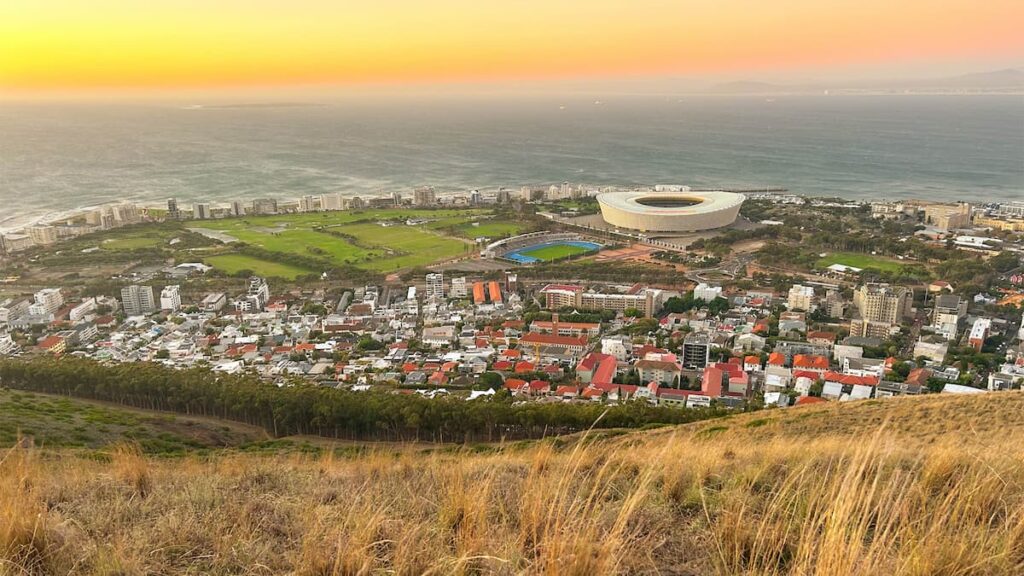
Nightlife (What I didn’t do too much)
I didn’t go out that much. Unusually for me right, but the Burn was enough of party for 2 weeks after. Actually I only went to some bars and a Burn decompression party – but not a 100% sure if this does catch the vibe of a normal night going out in Cape. So, not too much information on that. There’s a lot of movement going on around Kloof Street, so what ever mood you’re in, I guess you find something for every musical genres.
Outdoor Activities for Every Taste
If you’re an outdoor freak, Cape Town has got you covered. Nestled between mountains and beaches, both on land and on water there’s plenty to do. The most famous activities range from hiking the pointy peaks around town,go surfing, kayaking (for sunrise), or do amazing road trips on the scenic roads to nearby vineyards or lodges. Renting a car is super cheap.
Personally, I didn’t go too hard on the adventure side this time. A few long walks along the Sea Point Promenade, sunset views from Signal Hill, and a short hike up Lion’s Head were enough to feel the raw energy of this place. Even if you don’t do much, nature is always right there, pulling you in, even on your laziest days.
So while I can’t give you a full top-10-things-to-do list, I can say this: Cape Town doesn’t need a plan. Just get outside and you’ll stumble into something unforgettable. What I still had on my list: Hiking up the Table Mountain, doing a wine tour (maybe get a driver for this), take a day tour to Drakensberg. I’m curious to hear about your itinerary!
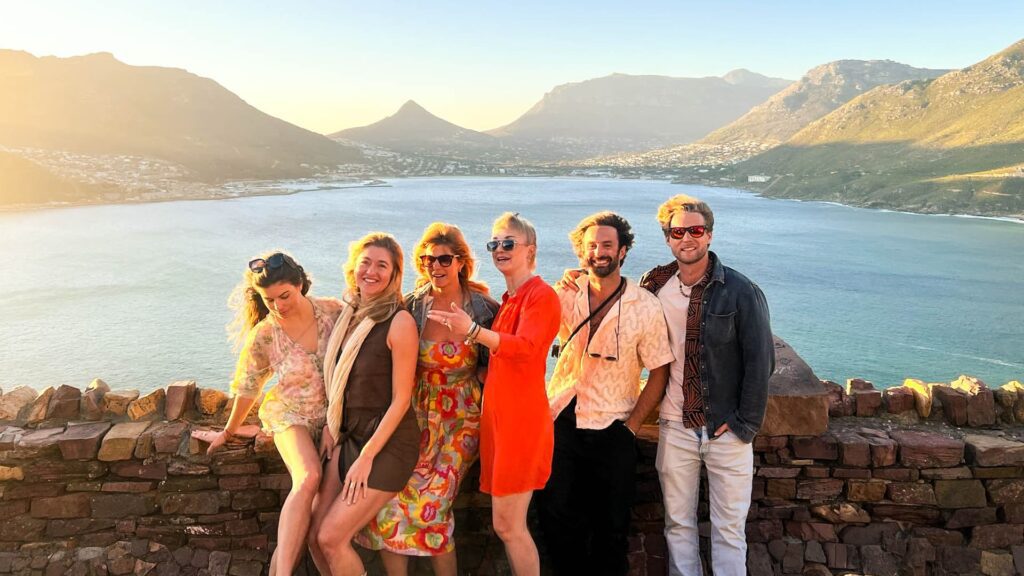
The People and the Vibe
I had expectations regarding the people I’d meet in Cape Town. Just by the stories I saw before actually getting to South Africa. What I thought: “Looks, great, but that’s a pure bubble.” And this is exactly what I encountered. But yes, it’s a very beautiful bubble, that personally I consider very fertile, especially for Digital Nomads with entrepreneurial spirit.Before the Burn I knew pretty much nobody, but then I easily made friends both South Africans as also internationals living in Cape Town. And there’s a lot of them. I think I know no other places with that many Digital Nomads: European remote workers, that come for the winter, Start Up Founders and a lot of coaches. South Africa seems to attract them all. I put my feelers out a little and built up a pretty good network just in a couple weeks. So for making professional contacts especially Digital Marketing and Coaching industry the mother city is the best place.
But business is not everything– not even half of it: People in South Africa have been super friendly, smiling, helpful. Just a warm atmosphere, both the nomads as also the locals. Especially the black. Coming back to the bubble thing and what makes it one. You’ll find your place pretty fast if you’re white, Western-educated, entrepreneurial, (semi-)nomadic, and somewhere between new-rich and spiritually curious. And don’t get me wrong it’s inspiring and exciting in there. But what about a truly local experience?
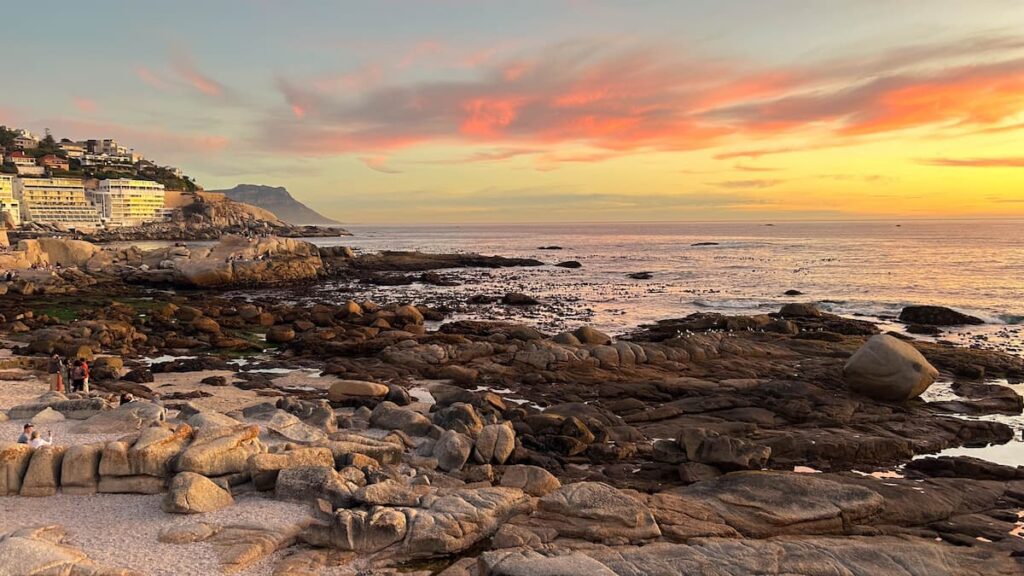
The Bubble and What’s Outside of it: Things, You Can’t Unsee
Already the moment I stepped off the plane, drove to my hostel in Green Point, and walked into the first restaurant, I realized: something’s not right here. The segregation, that “officially” ended in the 90s, is still crystal clear. Black people work, white people live and enjoy. In middle- to upper-class places, I’d say 98% of the guests are white. The people working in the kitchens, doing the cleaning, the lower-paid jobs, almost 100% Black.
I’ve never been so confronted with a social divide that’s this clearly tied to ethnicity. Brazil has something similar for sure, but there it’s less obvious. Whether that’s better or worse — not sure. For me personally, it just doesn’t feel right. And I kept wondering: what about all the people who choose to live here long-term? How do they deal with this?
I asked around, mostly because I was curious. The answers were often the same: “It is how it is,” or “You get used to it.” And the weird part is: you actually do. I felt it in myself. After a while, it starts to feel normal. The division is just there, very present.
That’s the part I struggled with most.
A friend of mine described Cape Town as the Europe of South Africa and especially Camps Bay, Sea and Green Point feel exactly like this. But the townships, the poor settlements of small shacks of the black South African population can’t be unseen. I was shocked, that the „dark spots“ that you see from the Lions Head in the distance are exactly those settlements, where the people live that serve you your breakfast in the „Social Club“ that you find so cheap as a western European.
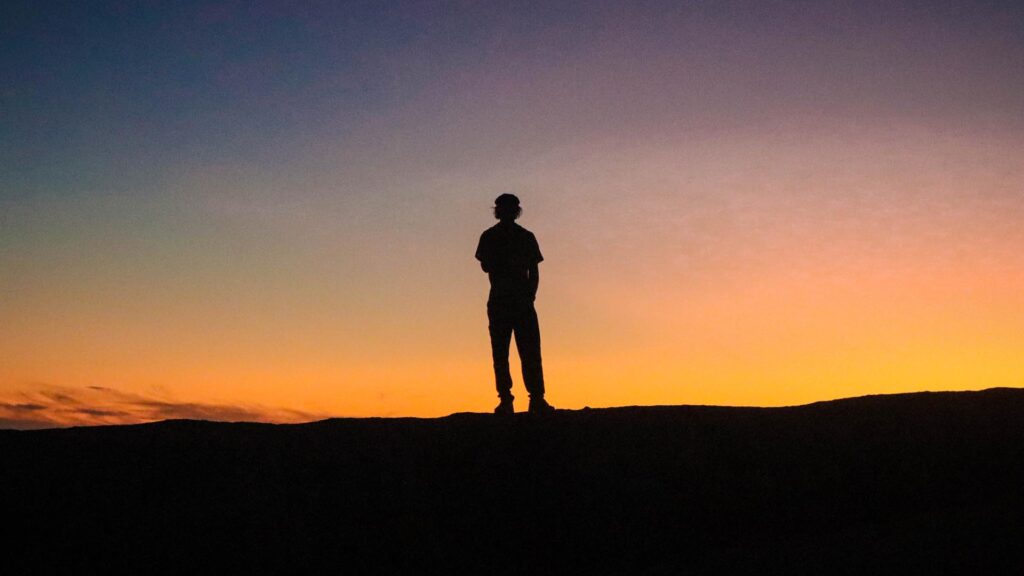
My Role in All This (And Maybe Yours Too)
And this fact make it worse: with the raising number of expats, nomads and foreign people that invest in real estate but also just come with a higher purchasing power to ZA, prices especially for housing rise drastically. But salaries don’t. Waiters earn around 30 rand (that’s 1,50 €) per hour. This and less is totally normal. For me interesting to see: Many Europeans come to South Africa to live a lifestyle they can actually not afford in their home country and post this all over their Instagram feed – at the expenses of the local black population, that’s already heavily disadvantaged. Am I a part of the problem? Yes. Hypocritical? Maybe. And honestly, it’s one of the main reasons I wouldn’t want to stay in Cape Town long-term. I’m aware of it and made my conclusion.
How to react when you’re there? I think critical awareness is number 1. Be friendly and open to everybody you meet, give tips, appreciate them. Don’t live over excessively, do not spend only in the expat bubble, go local.
So Should You Go?
I think it gets obvious why Cape Town is a great place for Nomads. No matter how long you stay. Escape the summer, go hiking/surfing, connect with an amazing community, enjoy the vast beauty of the cape – and everything for an absolutely affordable price.
I’m sure I’ll be back. For the Burn, for the amazing people I met, for the energy. And I definitely recommend you hop on a plane and check it out for yourself. Give it at least a month, rent a car, explore the coast, the vineyards, the city, the mountains. My plan is to get out of the city and just drive along the coast – something I’ve missed out ojn this time.
But don’t pretend it’s perfect. The social and racial inequalities are too present for that. Don’t stay away. But stay aware. You don’t need to have the answers. But I think the worst thing we can do is act like there’s no question at all.
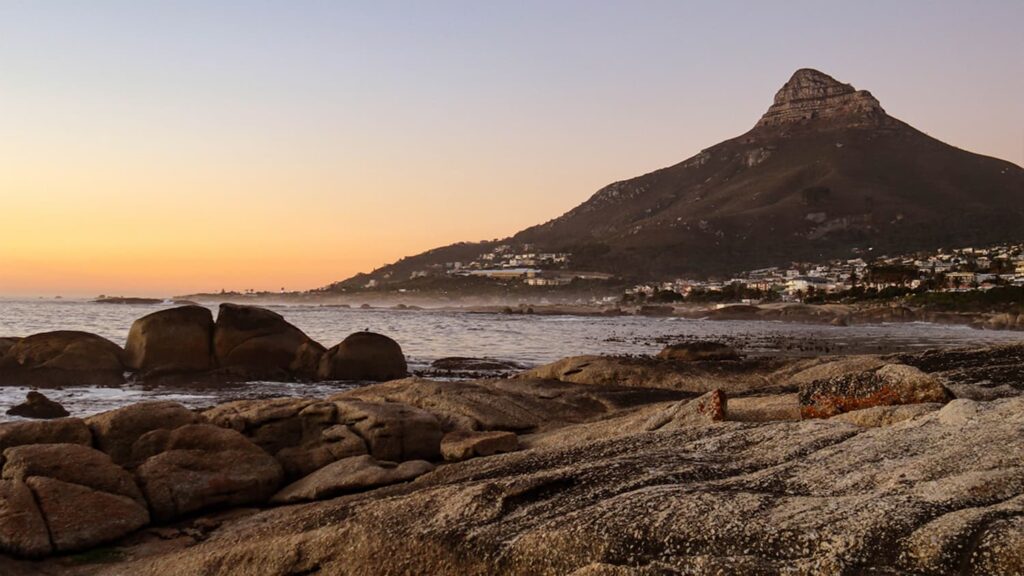
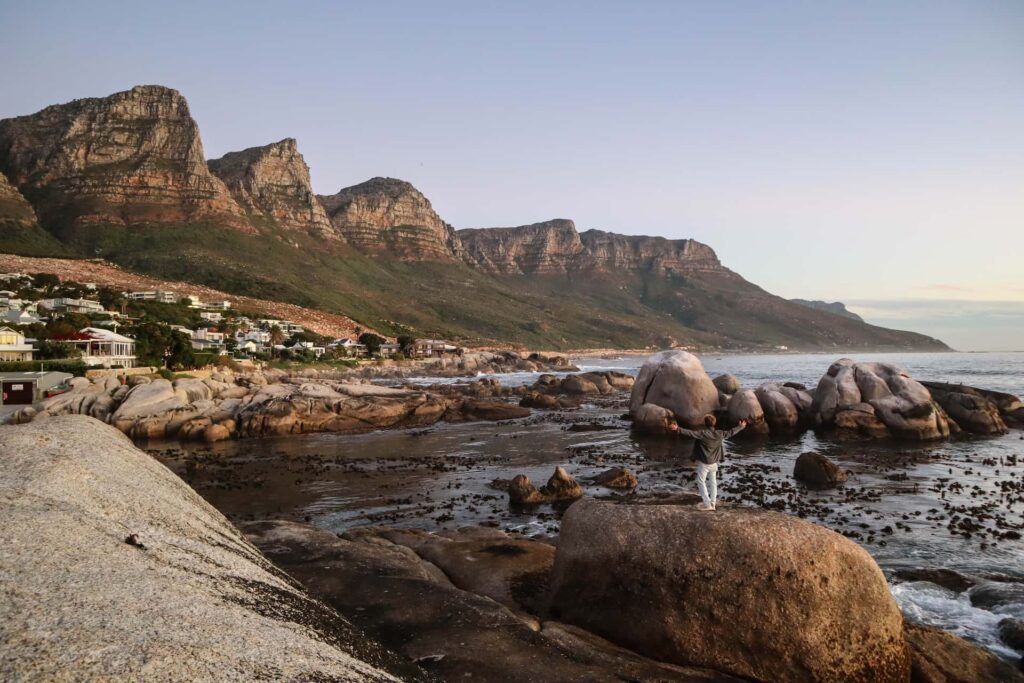
 Author:
Nicolas Eismann
Author:
Nicolas Eismann